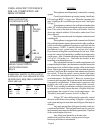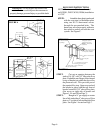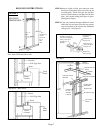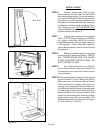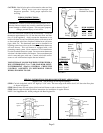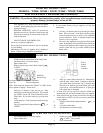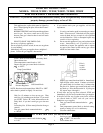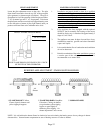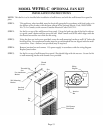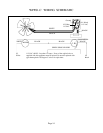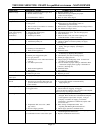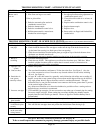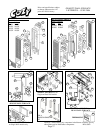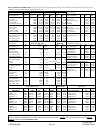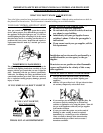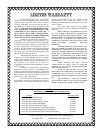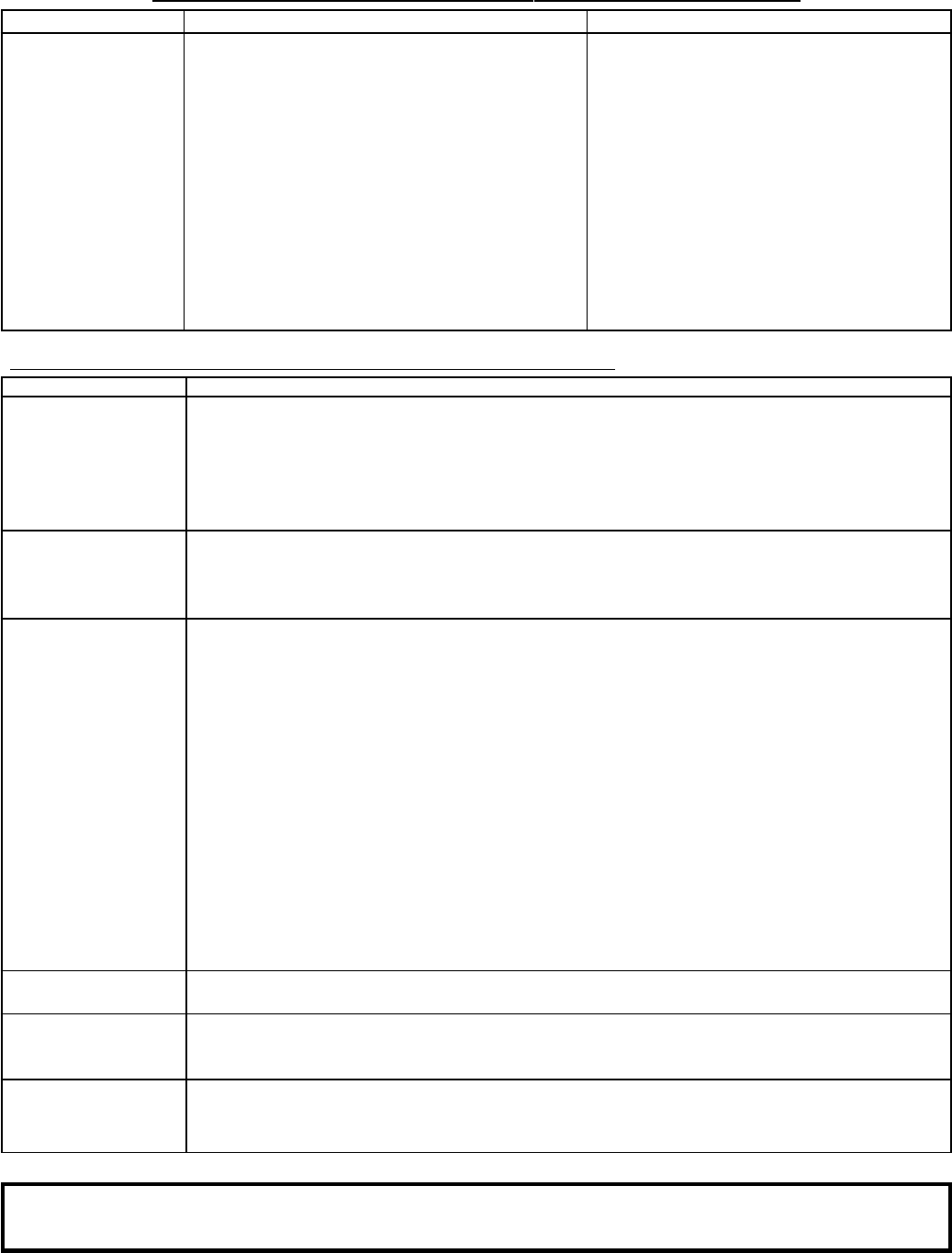
SYMPTOM POSSIBLE CAUSES CORRECTIVE ACTION
Burner won’t 1. Pilot flame too large or too small. 1. Re-adjust pilot flame using adjustment on
turn on combination control valve.
2. Dirt in pilot orifice. 2. Clean pilot orifice with air or solvent, do
not ream.
3. Defective automatic pilot section in 3. Replace entire combination control valve.
combination control valve.
4. Defective thermocouple. 4. Replace thermocouple.
5. Defective combination control valve. 5. Replace valve.
6. Wall thermostat models - manual reset 6. Reset switch, see Page 6 and blocked flue
blocked flue switch tripped. section below.
TROUBLE SHOOTING CHART - AUTOMATIC PILOT & VALVE
TROUBLE SHOOTING CHART - BLOCKED FLUE SWITCH (FOR USE BY A QUALIFIED SERVICEMAN)
POSSIBLE CAUSES CORRECTIVE ACTION
1. Blockage in A. Check vent pipe for blockage, such as bird nest, wasp nest, twigs, leaves, etc.
vent pipe B. Check inside the bottom of the vent pipe to make sure the top of the draft diverter did not
rip the inner liner causing it to block part of the vent opening.
C. Check that no insulation from the header plate got caught on top of the draft diverter when
the heater was inserted into the wall.
D. Check that the vent cap is properly installed, not shoved too far down on the vent pipe.
2. Burner is A. Check the manifold pressure.
overfiring B. Check the rate, NOTE: This appliance was orificed for elevations up to 2,000 feet. When
installed at higher elevations refer to orifice chart in controls section of instructions for
proper orifice size and re-orifice accordingly.
3. Improper vent 3. Correct vent system.
system
A. Vent too short A. The vent should terminate a minimum of 12 feet above the floor. See Figure 2. Also, the
top of the vent must be at least 2 foot above any obstacle within a 10 foot radius, including
the roof. See Figure A.
B. Restriction in B. All type “B” vents shall extend in a generally vertical direction with offsets not exceeding 45
vent system degrees, except that a vent system having not more than one 60 degree offset may be allowed.
caused by offsets Any angle greater than 45 degrees from the vertical is considered horizontal. The total
horizontal run of a vent plus the horizontal vent connector shall be not greater than 75 percent
of the vertical height of the vent.
Any offsets used should be as far above the drafthood as possible to allow a venting action to
begin before any restriction is encountered.
C. Incorrect vent pipe C. Use listed BW type vent pipe. Do not use tansite or any other type of ceramic pipe for venting.
Do not use single wall pipe. When venting into a masonry chimney the chimney must be
properly lined and sized for this gas furnace. The use of type B or flexible chimney liner is
recommended.
4. Incorrect header 4. The header plate must be 65-3/4” above the floor plate. See rough-in instructions.
plate location
5. Vent pipe not down 5. Use a base plate (obtained from the vent pipe manufacturer) on top of our header plate.
on the header plate This will lock the vent pipe down and prevent the draft diverter from shoving it up.
securely
6. Loose connections 6. Check the connection on both the switch and the gas valve. Tighten if necessary.
on the vent safety
wiring harness
DO NOT BYPASS THE BLOCKED FLUE SWITCH
To do so could expose the consumer to property damage, personal injury or possible death.
Page 16



